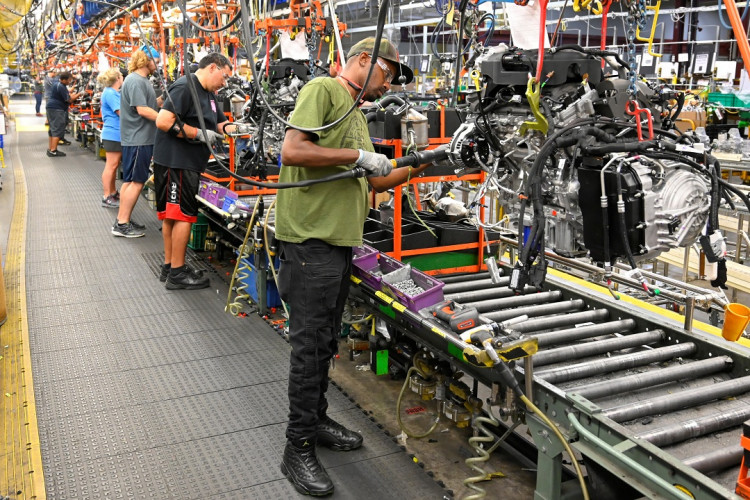The United Auto Workers (UAW) strike has sent shockwaves through the automotive industry, with potential repercussions for the financial strategies of major players like General Motors (GM) and Ford. The labor dispute, which has garnered significant attention, underscores the challenges faced by automakers as they navigate the transition to electric vehicles and grapple with broader industry changes.
The strike's implications are far-reaching, especially for GM and Ford, who have both outlined ambitious plans to invest heavily in the development of new electric vehicles. These plans are funded by the robust profits generated from their combustion-engine trucks and SUVs. However, the ongoing labor dispute threatens to disrupt these strategies, potentially delaying the rollout of new models and impacting the companies' bottom lines.
The situation is further complicated by the fact that both GM and Ford have committed to returning capital to investors, a promise that could be jeopardized by prolonged strike action. The financial stakes are high, and the outcome of the labor dispute could have long-term implications for the automotive industry's trajectory.
The UAW strike has also had ripple effects in Kentucky. Workers in the state have been significantly impacted, with many facing unemployment. The strike fund, set up to support workers during such times, has been crucial in providing financial assistance. However, the prolonged nature of the strike has raised concerns about the sustainability of this fund and the long-term impact on workers' financial well-being.
The UAW's grievances are rooted in concerns over wages, job security, and the future of work in an industry increasingly dominated by automation and electric vehicles. As automakers pivot to embrace these new technologies, workers are seeking assurances that their rights and livelihoods will be protected.
The strike has also brought to the fore broader questions about the sustainability of the automotive industry's current business model. With the shift to electric vehicles accelerating, automakers are under pressure to adapt and innovate. However, the transition is fraught with challenges, from the need to secure a reliable supply of batteries to the task of retraining workers and retooling factories.
The labor dispute serves as a stark reminder of the tensions that can arise as industries evolve. While the push for electric vehicles is driven by environmental concerns and changing consumer preferences, it also has profound implications for workers and communities that have long relied on the automotive industry for employment.
As negotiations between the UAW and automakers continue, all eyes will be on the outcome. The resolution of the strike will not only determine the immediate future of workers and companies but could also set the tone for labor relations in the automotive industry for years to come.
Bill Ford Addresses Manufacturing's Future Amid Ongoing UAW Strike
Bill Ford, the executive chairman of Ford Motor Co., recently called a press briefing to discuss the future of manufacturing. The briefing was seen as a significant move, especially in the backdrop of the ongoing UAW strike.
Ford's discussion emphasized the company's commitment to its workforce and the importance of adapting to the changing dynamics of the automotive industry. The company has been navigating through these challenging times, trying to strike a balance between workers' demands and the company's operational needs.






